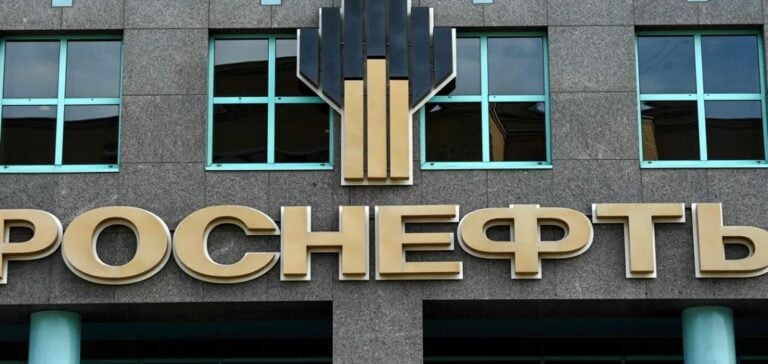The European Union announced on December 16 a new sanctions package against Russia, including the blacklisting of 52 additional ships and a shipping unit belonging to the state-owned oil giant Rosneft. This measure is part of a broader strategy to counter evasion of international sanctions on Russian oil exports.
In this latest round of sanctions, approved on December 11, the European Commission banned port access and service provision to 52 new ships, bringing the total number of sanctioned vessels to 79. According to the Commission, these ships are involved in high-risk activities such as transporting Russian oil, delivering weapons, grain theft, or directly supporting the Russian energy sector.
“With each new round of sanctions, we improve their effectiveness and close gaps,” the Commission said in a statement, reaffirming its commitment to supporting Ukraine in the ongoing armed conflict.
Rosneft and Its Executives Targeted
Among the entities added to the sanctions list is LLC Prime Shipping, a shipping unit affiliated with Rosneft, along with its general director, Igor Alexandrovich. JSC Rosnefteflot, another Russian company specializing in maritime transportation of crude oil and petroleum products, is also targeted, along with its general director, Alexey Nefedov.
The list also extends to European actors. Niels Troost, a Dutch businessman heading Paramount Energy and Commodities DMCC and affiliated with Livna Shipping, was included among the new targets of European sanctions.
Extension of Exemptions for Certain Member States
In addition to strengthened sanctions, the EU granted certain exceptions for its member states. The Czech Republic is authorized to continue importing refined fuels made from Russian oil transported via Slovakia for another six months. Additionally, Croatia benefits from an extension until December 31, 2025, for its purchases of vacuum gas oil from Russia.
The Persistent Challenge of Shadow Fleets
Western efforts, led by the G7, to impose a price cap on Russian oil at $60 per barrel have so far shown limitations. The majority of Russian oil is now transported by shadow fleet vessels, which evade control by G7 countries and their allies.
According to data from S&P Global Commodities at Sea, more than 80% of Russia’s seaborne crude exports in November were carried by ships not registered or operated in jurisdictions of G7 countries. This trend has been amplified by the gradual reduction of discounts on Russian crude.
Impact on the Oil Market
The benchmark Russian crude, Urals, is currently trading above the G7 price cap. In November, the price gap between Urals and Dated Brent stood at approximately $12.25 per barrel. Platts, a division of Commodity Insights, assessed Urals FOB Primorsk with a discount of $12.55 on December 10, a slight increase since August.
The expansion of EU sanctions follows similar measures recently adopted by the United States and the United Kingdom, which also aim to neutralize the capabilities of Russia’s shadow fleet.






















